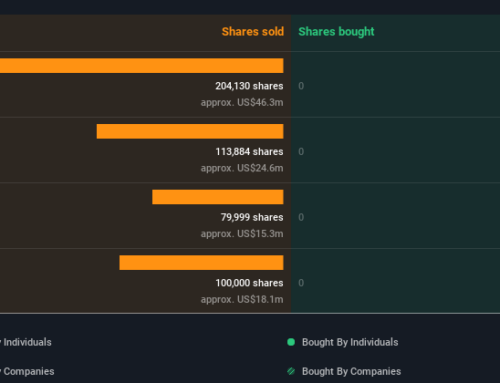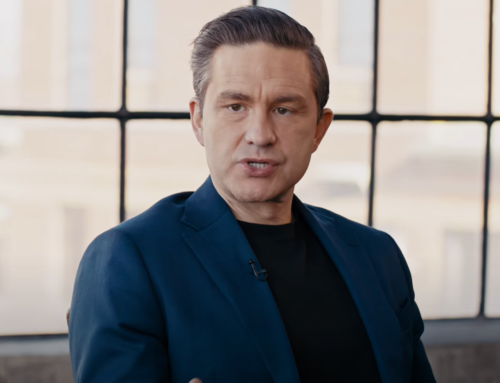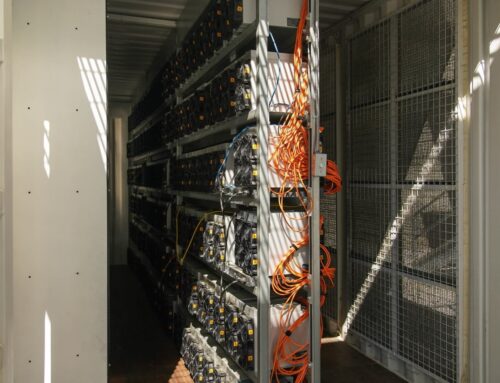LeBron to Saudi and a UK NFL team: our bold sports predictions for 2025
December 31, 2024
Here are our bold predictions for 2025 in sports. Please note the bold (or should that be bold?) in bold predictions: these are mostly to be taken with a pinch of salt.
LeBron joins the Saudi Basketball League
LeBron’s tongue-in-cheek reaction to Kylian Mbappé’s rejection of a $776m offer from Saudi Arabian club Al-Hilal might have seemed innocuous enough. As did subsequent responses from Draymond Green and Giannis Antetokounmpo. But you have to believe the NBA was at least a little nervous when the Kid from Akron paid a visit to the Kingdom six weeks later at the behest of the Saudi Ministry of Sport.
Whether the NBA’s all-time scoring leader joins the 49-year-old Saudi Basketball League on a one-year contract (for, say, $800m?) depends entirely on whether Saudi Arabia’s Public Investment Fund – valued at an estimated $650bn – expresses an open interest in jumping into basketball, which to date they have not. But after seeing how those bottomless coffers have disrupted one traditionally Western sport after another in an unprecedented demonstration of soft power – from soccer to golf to Formula One to boxing to women’s tennis to horse racing to professional wrestling – it seems almost naive to believe that basketball’s day won’t one day come. The idea of a quadragenarian King James taking his talents to Umluj Beach is no more daft than Cristiano Ronaldo and Neymar joining the Saudi Pro League might have sounded only a few years ago. Bryan Armen Graham
The NFL announces a London team
It’s no secret the National Football League has been planting the seeds for a franchise to move to London since before the International Series began in 2007. We’ve had an expansion of games played, a stadium in Tottenham designed to meet league regulations and, most importantly, the UK is said to have more than 14m fans of American football. Granted, not all are avid fans, but there are more than enough to surpass the 6m fan threshold the league set for a permanent franchise to be viable. Buckle up, folks, because 2025 is the year the NFL finally announces that one lucky franchise will be moving to London by 2028. I can’t predict the team but can forecast the news will cause massive turmoil. Melissa Jacobs
The Leafs end their 58-year Cup hoodoo
Humanity was still two years away from the first moon landing when the Toronto Maple Leafs last reached the Stanley Cup final, beating the Montreal Canadiens under the management of George “Punch” Imlach. Admittedly, back in 1966-67 the NHL had only six teams; now there are 32. Still, this marathon streak of futility is one of the most extraordinary inadvertent feats in North American sports, especially given the team’s enduring appeal and financial power.
The Leafs are the league’s most valuable team, worth $3.8bn according to CNBC. If the Blue Jays, Toronto FC and the Raptors can win fairly recent titles in a metro area of nearly 7m people, surely so can the Leafs, who are currently well placed in their division and have a star goalscorer in William Nylander. Yes, there has been mismanagement down the years. But at some point, isn’t a decent group of players like this one going to get lucky and fluke it till they make it? The Leafs, like Nasa, are due another giant leap. Tom Dart

The WNBA surpasses the NBA in viewership
The WNBA, the world’s fastest-growing brand, shows no signs of slowing at a time when NBA viewership is down. The women’s league averaged 1.2m viewers per game in 2024, a 115% increase over 2023. With the NBA averaging just 1.6m – half its numbers from last year – the WNBA overtaking the NBA in average viewers next year is possible.
The WNBA finals matching the NBA finals viewership remains a stretch. This year’s Liberty-Lynx finals averaged 1.6m viewers, a 20-year high, but far from the 11.3m who watched the Celtics defeat the Mavericks. Still, scenarios involving Caitlin Clark and the Fever could shift the landscape. Clark’s NCAA championship game drew 18.9m viewers, and a Fever finals appearance – especially against the Liberty, Aces, or Lynx – could push viewership into record territory.
Whether the Fever reach the finals depends on the draft (Sonia Citron could be a transformative pick) and how Clark’s sophomore season pans out. Other teams also delivered major wins in 2024, proving that WNBA success isn’t all about Clark – though her impact can’t be overstated. Stephanie Kaloi
Sports leagues retreat from political activism
In his first term Trump let fly with his hottest sports takes, hitting out at Colin Kaepernick and the other pros at pains to demonstrate against police brutality and racial injustice during the national anthem and in competition – and Kaepernick et al weren’t shy about hitting back. But with many of Trump’s past critics in the political and corporate arenas swiftly cowed into anticipatory obedience since his emphatic reelection victory, America’s sports leagues and sponsors will be far more obsequious this time around, especially now that X– an official podium for so many in sports – is official property of Elon Musk, the shadow president. And then there are sports like golf, which are heartily cheering the president-elect’s return in hopes that he might un-muddle the mess they’ve made with his Saudi friends.
The days of championship teams skipping White House visits? That’s through. The days of LeBron James, sport’s most outspoken star, trading barbs with Trump? Also through. In fact, the Lakers legend’s muted endorsement of Kamala Harris and post-election social media sabbatical declaration suggests even he sees the writing on the wall: any talk of politics in sports will soon be a one-way street. Andrew Lawrence
Athlete activism makes a comeback
Athlete activism, which peaked in 2020 and 2021 after the death of George Floyd, will make a comeback this year. This time, the leagues and organizations will struggle even more than they did four to five years ago to appease their athletes, many of whom were beginning their careers during the last wave, while avoiding condemnation from a White House whose tolerance for dissent may be hitting a 50-year low.
Protests might not include kneeling for the national anthem, which may not have been the most effective means of getting points across. But athletes will use their social media might to speak up against any injustices that arise. We may see more athletes in Pride marches. Some athletes may wear political T-shirts in place of the flashy suits that have turned their arrivals at stadiums into a red-carpet occasion.
The bravest and perhaps unlikeliest protest would be in the UFC, where president Dana White has forgotten or forgiven the Trump family’s rival MMA promotion several years ago and has, along with conspiracy theorist podcaster and UFC commentator Joe Rogan, treated Donald Trump like a Roman emperor at gladiator bouts. Athletes have, in the past, expressed some opinions that don’t fall in line. Would a UFC fighter dare to speak out against White’s buddy in a post-fight interview? Beau Dure

The Spurs spring a massive NBA playoff upset
Victor Wembanyama continues to dazzle, showcasing his otherworldly talent on Christmas Day as the San Antonio Spurs faced the newly Karl-Anthony Towns-enhanced Knicks at Madison Square Garden. Though the Spurs ultimately fell short after a late New York comeback, Wembanyama was the star of the show, dropping 42 points, grabbing 19 rebounds and blocking four shots – just two points shy of Wilt Chamberlain’s Christmas debut record.
Watching Wembanyama, it’s easy to dream of a future where the 7ft3in French phenom dominates as Chamberlain once did, perhaps even averaging 50 points per game. His brilliance highlights the Spurs’ upward trajectory amid a shifting NBA landscape where Golden State and the Lakers appear to be on the decline. With the postseason looking increasingly likely for San Antonio, the team could accelerate its ascent with a bold move, such as acquiring a player like De’Aaron Fox. A first-round upset against a contender like Oklahoma City isn’t out of the question and with Wembanyama at the helm, the Spurs’ potential seems boundless and ahead of schedule. David Lengel
The NBA changes its rules around three-pointers
The NBA will to implement a rule change aimed at reducing three-point attempts. The alarming decline in TV ratings has put pressure on commissioner Adam Silver to address the issue. Currently, teams average an all-time high of 36 three-point attempts per game, with most utilizing a five-out alignment, leaving the post empty and even centers stretching the floor with three-point shooting. Some of the proposed solutions – I have yet to hear one that I like – include removing the corner three-point line or capping the number of three-point attempts per team before subsequent shots are only worth two. A change seems inevitable. The real question is whether Silver will opt for a subtle adjustment or a more drastic overhaul. Nicholas Levine
The NCAA surrenders the ‘amateurism’ model
Since the US supreme court ruled in 2021 that college athletes could make money off of their “name, image and likeness”, the NCAA model of “amateurism” – the classification of college athletes as full-time students and part-time athletes – was doomed to fail. In October, a settlement worth nearly $3bn was granted preliminary approval by a federal judge. Though there are hurdles before the era of amateurism ends, the NCAA might determine that the chaos engulfing its billion-dollar enterprise is no longer worth the terrible press it endured in 2024.
A week after announcing the historic settlement, the NCAA reached a different settlement with the Department of Justice that ended all restrictions for athletes seeking to transfer schools. And in July, a federal appeals court ruled in a separate case that college athletes may qualify as employees under federal wage-and-hour laws. Because the NCAA maintains that college athletes are students and not employees, the athletes and their representatives are negotiating contracts with “collectives”, loose consortiums of donors that pool money to pay the athlete in exchange for small commitments off the field like advertising or charity work.
In September, UNLV quarterback Matt Sluka left the team after starting the year 4-0 and claimed that he was not paid the money he was promised. Representatives from the school indicated there was no such promise and that Sluka was merely trying to renegotiate his contract in the middle of the season. On Monday, UConn football coach Jim Mora suggested that schools and coaches are wantonly violating in-season tampering rules and that the NCAA should improve its enforcement.
After decades of complete control over its athletes, the NCAA and its affiliated universities have lost virtually all of its bargaining power to athletes who are free to negotiate and re-negotiate contracts without restriction, but not with the universities themselves. Long a tightly-controlled cartel, the NCAA is now a barely regulated free market. The ensuing chaos of the new era will soon bring an end to the mirage of amateurism that denied generations of athletes a cut of the NCAA’s billions. Gabriel Baumgaertner
Search
RECENT PRESS RELEASES
Related Post



